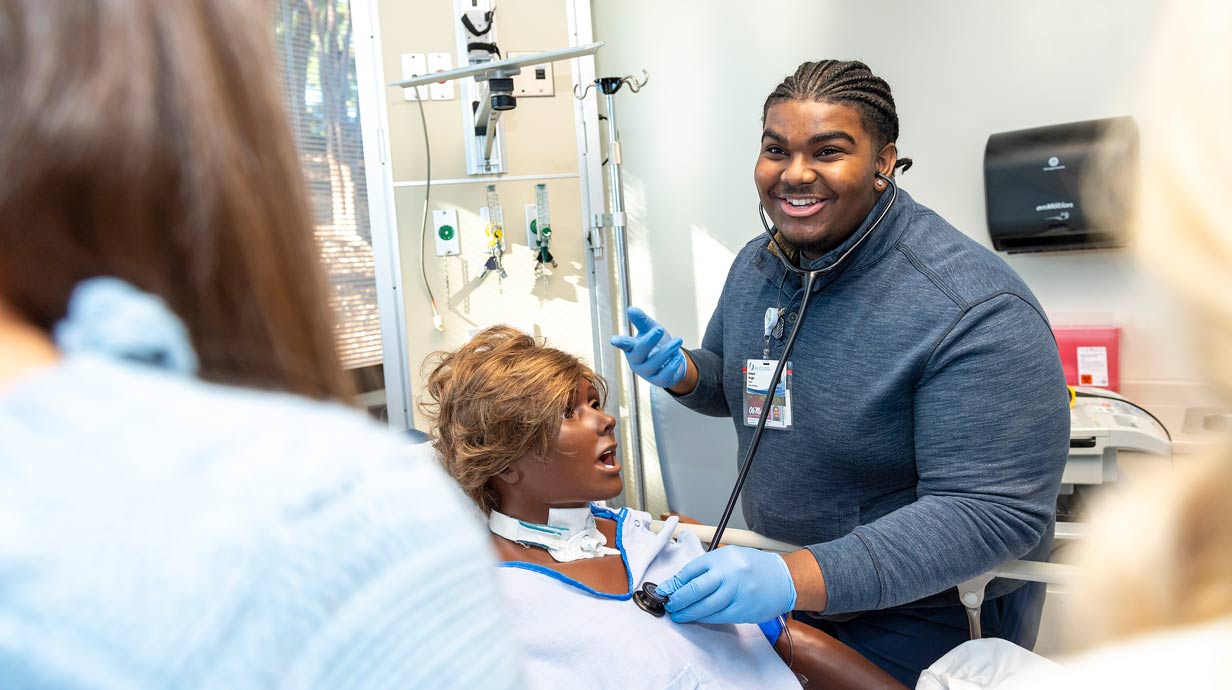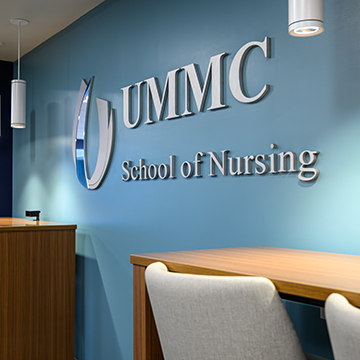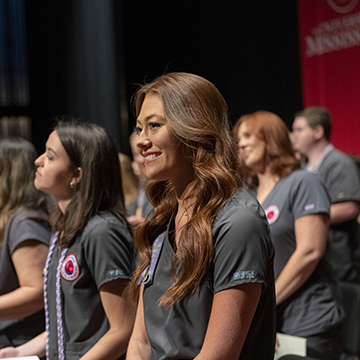Nursing, B.S.N.
Prepare for a health career that provides focused and highly personalized care.

About the Bachelor of Science in Nursing
Students applying to the university who are interested in pursuing nursing are placed in the Allied Health Studies major; however, you can choose any major as long as you complete the required prerequisites for nursing school. Many students choose Allied Health Studies because it aligns well with those requirements.
At the University of Mississippi Medical Center (UMMC) School of Nursing, there are two main pathways to earn a Bachelor of Science in Nursing (BSN):
- Traditional BSN (TBSN) track, which typically begins after completing two years of pre-requisites,
- Accelerated BSN (ABSN) track, designed for students who complete a bachelor's degree prior to nursing school.
The B.A. in Allied Health Studies is a collaborative program, with courses contributed by departments across the university and coordinated by the Health Professions Advising Office within the College of Liberal Arts. This nationally-recognized office supports students in preparing strong applications for admission to professional schools.
The Value of an Allied Health Studies degree
Students receive a well-rounded general education from the College of Liberal Arts that empowers them to deal with complexity, diversity, and change in the world. Allied Health Studies majors gain the ability to understand human behavior, communicate complex ideas, think critically, interpret data, and engage with a diverse world. These skills prepare our majors to enter any allied health profession and become leaders of the future.
What are the responsibilities of the nursing profession?
Nurses play a vital role in promoting health, preventing disease, and supporting patients through illness. With a unique and versatile scope of practice, they may work independently or in collaboration with other healthcare professionals. As advocates for patients, families, and communities, nurses design and manage care plans, provide education on proper care techniques, and empower individuals and groups to take proactive steps toward better health and well-being.
- Nursing Specializations, visit Discovernursing.com.
- For job outlook, visit Occupation Outlook Handbook.
On this Page…
Program Information
Degree
B.A. in Allied Health Studies
Emphases
Nursing
Required Credit Hours
120
Program Type
Major
Program Location
School
Duration
4 years
Choose From Three Different Paths to Earn Your BSN Degree
Degree Requirements
Find out about credit hour and course requirements from the 2025-26 academic catalog.
Students in the College of Liberal Arts earning the B.A. degree have a common set of 48-50 hours of general education. The specific courses taken to complete the categories of general education may differ between majors.
Categories of General Education:
- First Year Writing I, II
- English Literature Survey
- Modern or Ancient Language
- History
- Additional Humanities
- Fine or Performing Arts Appreciation
- Mathematics
- Social Sciences
- Natural Sciences
To see the details for these general education requirements, visit the UM online catalog or the degree sheet attached at the top of this webpage.
Students in the B.A. in Allied Health Studies program complete 30-36 credit hours of courses for the major, additional requirements, and a required minor field of study.
- Bisc 210: Microbiology (or any Bisc 300 level or higher)
- ES 396: Allied Health Terminology OR Clc 201: Medical Terminology
- NHM 311: Nutrition
- Spch 102: Fundamentals of Public Speaking OR Spch 105: Business and Professional Speaking
- One advanced communication course:
- Spch 305: Collaborative Communication
- Writ 300: Rhetoric of Professional Communication
- Writ 310: Writing in Professional Contexts
- Writ 320: Contemporary Writing Studies
- Writ 380: Scientific Writing
- Writ 399: Special Topics
- Writ 410: Grant Writing
- 5 of the following electives:
- Anth 349: Medical Anthropology
- GER 310: End of Life Issues
- GER 344: Aging in the 21st Century
- GER 390: Special Topics
- GER 490: Programs and Services in Gerontology
- IMC/Jour 585: Health Communications
- MGMT 352: Health Innovation & Information
- MGMT 353: Healthcare Regulation and Policy
- NHM 323: Human Growth and Development
- NHM 325: Family Relations
- NHM 328: Child Development
- PH 303: Prevention and Care of Athletic Injuries
- PH 312: Behavioral Aspects of Weight Management
- Phil 321: Ethics
- Phil/Rel 328: Biomedical Ethics
- Soc 301 or G St 303: The Family
- Soc 310: Sociology of Disability
- Soc 311: Social Problems
- Soc 333: Sociology of Delinquency
- Soc 345: Population Trends and Problems
- Soc 353: Community Development
- Soc 370/Hon 315: Population Health
- Soc 413/AAS 413: Race and Ethnicity
- Soc 427: Social Stratification
- SW 326: Gerontology
- Any 300 level or above Bisc course
- Any 300 level or above Psy course
- Any 300 level or above ES course
Additional requirements for the program are:
- Psy 201: General Psychology
- One of the following
- Psy 301: Developmental Psychology
- Psy 311: Psychopathology: Integrative Approaches
- NHM 323: Human Growth and Development
HPAO Opportunities
HPAO Video
Watch the video below to learn more about HPAO from our students and staff.
Next Steps
Explore Affordability
We have a variety of scholarships and financial aid options to help make college more affordable for you and your family.
Apply to the University of Mississippi
Are you ready to take the next step toward building your legacy?



